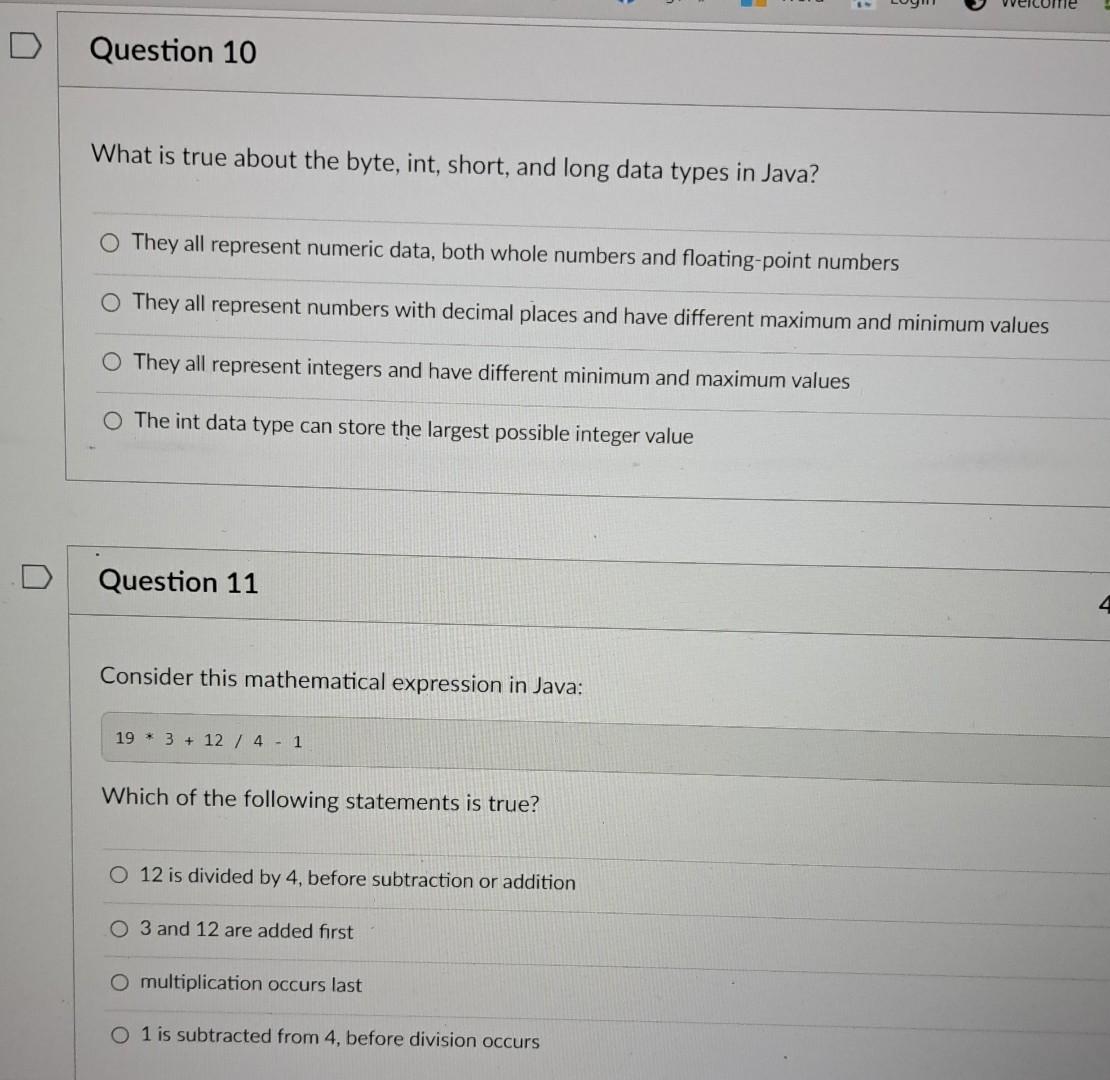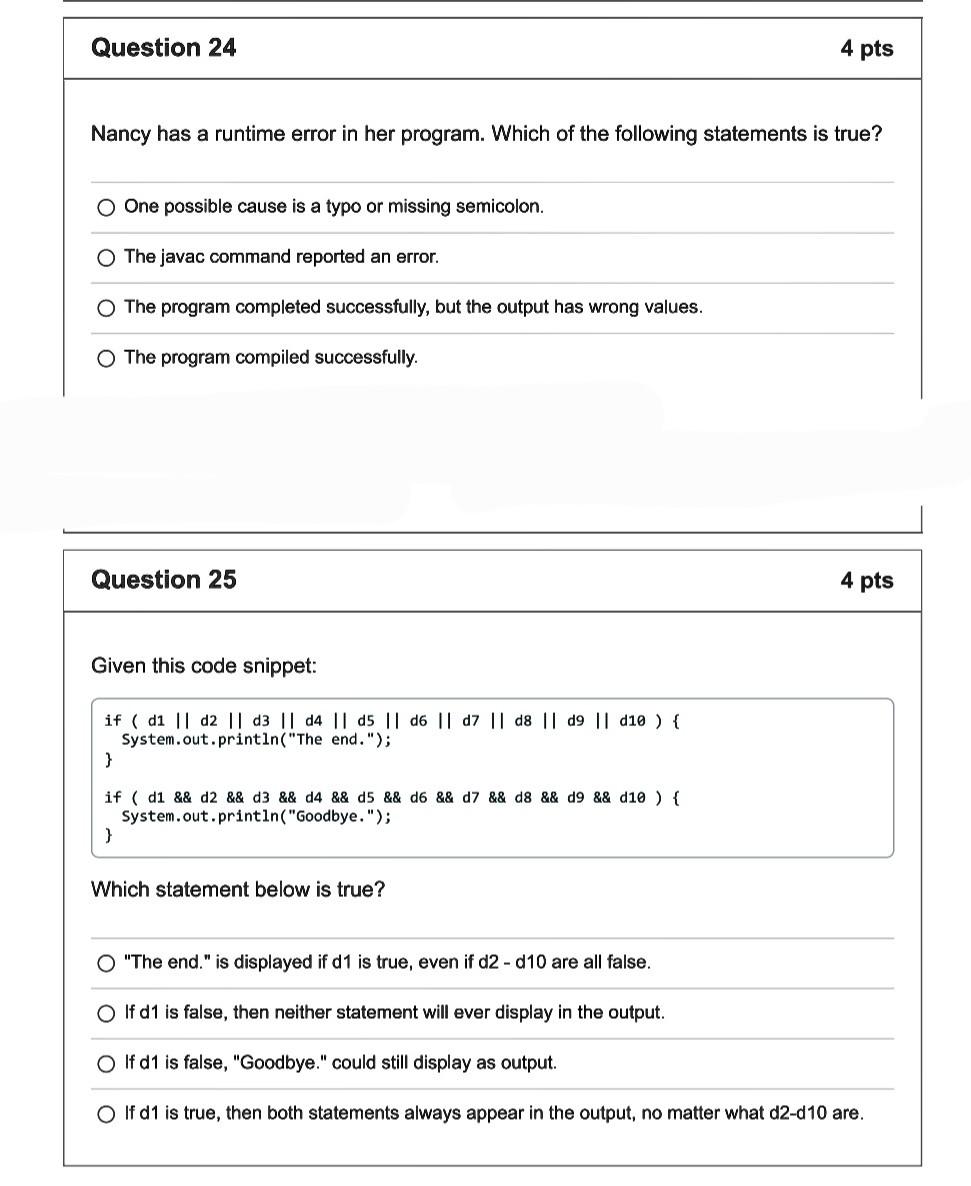Answered step by step
Verified Expert Solution
Question
1 Approved Answer
What is true about the byte, int, short, and long data types in Java? They all represent numeric data, both whole numbers and floating-point numbers


What is true about the byte, int, short, and long data types in Java? They all represent numeric data, both whole numbers and floating-point numbers They all represent numbers with decimal places and have different maximum and minimum values They all represent integers and have different minimum and maximum values The int data type can store the largest possible integer value Question 11 Consider this mathematical expression in Java: 193+12/41 Which of the following statements is true? 12 is divided by 4 , before subtraction or addition 3 and 12 are added first multiplication occurs last 1 is subtracted from 4 , before division occurs Nancy has a runtime error in her program. Which of the following statements is true? One possible cause is a typo or missing semicolon. The javac command reported an error. The program completed successfully, but the output has wrong values. The program compiled successfully. Question 25 4pts Given this code snippet: if ( d1 || d2 || d3 || d4 || d5 || d6 || d7 || d8 || d9d1){ System.out.println("The end."); \} System.out.println("Goodbye."); Which statement below is true? "The end." is displayed if d1 is true, even if d2 - d10 are all false. If d1 is false, then neither statement will ever display in the output. If d1 is false, "Goodbye." could still display as output. If d1 is true, then both statements always appear in the output, no matter what d2d10 are
Step by Step Solution
There are 3 Steps involved in it
Step: 1

Get Instant Access to Expert-Tailored Solutions
See step-by-step solutions with expert insights and AI powered tools for academic success
Step: 2

Step: 3

Ace Your Homework with AI
Get the answers you need in no time with our AI-driven, step-by-step assistance
Get Started


